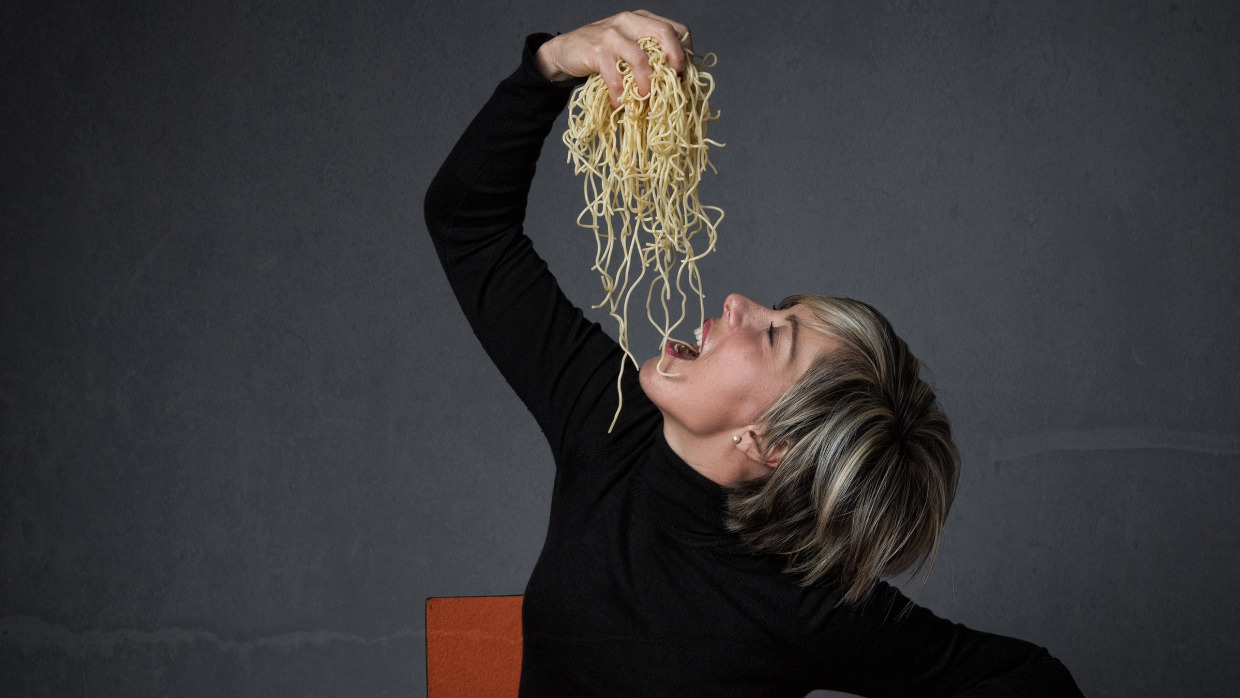Whether you learned not to eat with your mouth full or to place your napkin under your collar, we've all grown up with different house rules and table etiquette. These rules and regulations are especially pronounced in Jewish homes, with each Jewish community and culture having something different to say.
To understand the various approaches to dinner etiquette, we turn to the voices of prominent Jewish philosophers, thinkers, and leaders of Jewish communities. With their insightful musings on ethics, these individuals have contributed to Jewish thought and the broader conversation on communal living.
Maimonides & Moderation
Enter Moses ben Maimon, commonly known as Maimonides, who was a towering figure in medieval Jewish philosophy. Born in Cordoba, Spain, in 1135, he lived through the tumultuous times of the Almohad conquest, which led his family to seek refuge in Morocco and eventually settle in Cairo, Egypt. Maimonides' intellectual prowess spanned disciplines from medicine to theology, with his influential works like the "Guide for the Perplexed" and the "Mishneh Torah" reshaping Jewish thought.
With his emphasis on balance and moderation in all aspects of life, Maimonides offered valuable insights into table manners. He emphasized the virtue of temperance, encouraging individuals to eat and drink in moderation.
Maimonides was well ahead of his time when he advised that one should “Eat only when hungry. Don’t keep eating until your stomach is full. Eat a quarter less than the amount that would make you fully satisfied. Always sit down to eat. Say a blessing. Give thanks before and after eating.” These are the same tips any modern dietitian worth their salt would give you.
The Talmud
In the Talmud, we find plenty of insight as well. Anyone who’s sat next to someone eating a can of tuna on a train can surely attest to the truth of this quote: “Anything that causes expectoration or an odor should not be eaten in company.”
We also find discussion about how scholars are held to a higher standard than others in that they should never eat standing and never lick their fingers after a meal “for this is the way of gluttons.”
No Crumb Left Behind
Another core concept in Judaism is that of “Bal Tashchis,” the principle of not being wasteful. This concept has strong roots in Jewish literature, so much so that many are averse to throwing away whole slices of bread and prefer to donate the bread to the homeless and hungry. Modern Jewish vegetarians use this principle as one justification for a vegetarian diet, citing that it leads to a more sustainable and less wasteful lifestyle. This paints a very different picture than the stereotypical Bubbe who brings out bowl after bowl of Matzo Ball soup long after you’ve had your fill.
Many of these attitudes towards waste in more recent times come from a post-Holocaust Jewish world that was traumatized by starvation in concentration camps and ghettos. The countless stories of survivors who would hide bread under their pillows and never let even a potato peel go to waste after their experiences with food deprivation and never knowing when their next meal would come serve to strengthen the concept of not wasting food. The contemporary Zero Waste Food Cooking movement that aims at a diet that makes sure to use every last morsel of cookable food echoes these same ideas.
Rebbe Nachman of Bratslav & Eating Slowly
Rebbe Nachman was a Hasidic rabbi and founder of the Bratslav Hasidic movement. He revitalized the Hasidic movement with his teachings, which fused mysticism with Jewish scriptures. He is known to have had many apothegms on ideas of dinner etiquette.
“Be careful not to gobble your food hurriedly. Get into the habit of eating at a slow pace, calmly, really tasting and enjoying the food, and with the same table manners as if an important guest were present.”
“One of the marks of human dignity is to eat only what one needs. Someone who
eats more than he needs is like an animal who eats and chews the whole day. This
can bring on disease.” He continues and says, “Eating properly in this way subdues the tendency toward folly, heightening one’s intellectual and spiritual faculties.”
Over-indulgence is a great point of criticism for many of the great Jewish thinkers, in accordance with many of the stoic thinkers of Ancient Greece. Rebbe Nachman goes on to explain how “Our spiritual consciousness becomes dulled to the extent that we gratify our cravings for things and food in excess of what we need to fulfill our mission in this world. To recover our spiritual sensitivity, we have to rectify these cravings.” In today’s world, with the influx of calorie counting and mindful eating, Rebbe Nachman’s words ring truer than ever.
Modern Jewish Philosophers
Even in modern times, table manners and etiquette discussions have continued to go strong.
Rabbi Abraham Joshua Heschel, a revered 20th-century Jewish theologian, had an approach to eating that, while challenging in practice, is immensely inspiring spiritually. Heschel found the idea of the communal meal a wholly unique and godly experience. He urged individuals to approach meals with reverence, recognizing the sacredness of sustenance. Heschel's writings invite us to view the act of dining not merely as a physical necessity but as an opportunity for gratitude, reflection, and connection. He sees dinner as a time to decompress from work rather than speak about it. Americans work more than ever before. He sees it as a fulfilling spiritual endeavor to devote time to our personal relationships intentionally.
To bring this idea home, Rabbi Avraham Greenbaum writes the following: “Eating like this, in the spirit of holiness, enables the sparks which are trapped in the food, to find their tikkun, healing, repair, fixing. So it then becomes a sacred meal, and your table becomes an altar… All that belongs to you, your household effects, your animals, your food, clothing, home, your business or work, and each situation you find yourself in; they all belong to the sparks of your own soul, which you are called to lift up.”
Through the wisdom of Jewish philosophers like Maimonides, Heschel, and Rebbe Nachman, as well as ancient Talmudic insights, we find guidance on how to imbue our meals with more profound meaning and to treat ourselves with greater reverence. As we explore their understandings, we unearth a treasure trove of principles inviting us to dine as a physical necessity and a spiritual and communal experience.

















